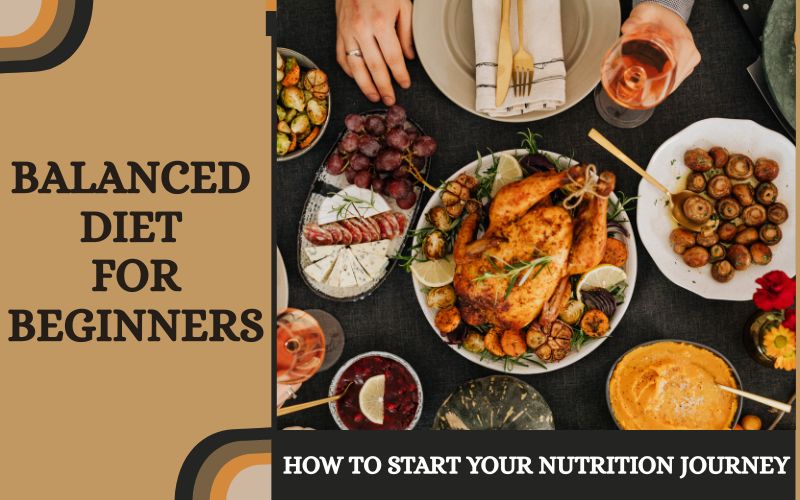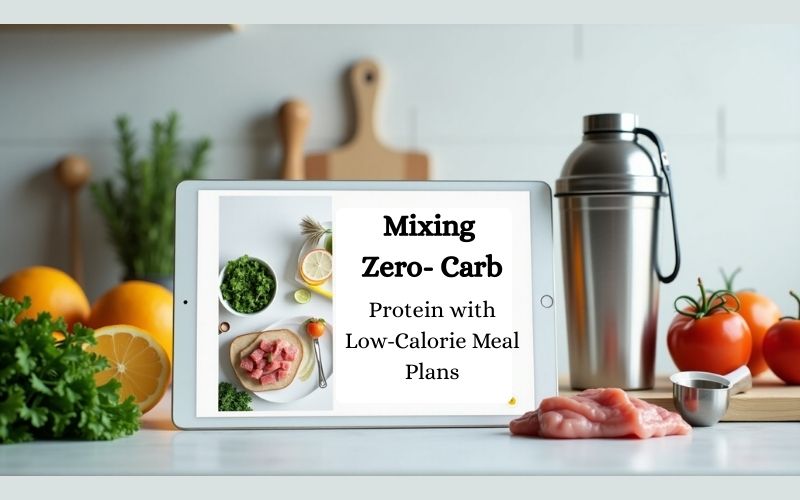Eating well often feels overwhelming for beginners. Between conflicting diet plans, trendy restrictions, and social media “hacks,” it’s hard to know what actually works. The truth is, you don’t need to follow extremes or count every calorie to feel healthy and energized. What you need is balance. A balanced diet is not about perfection, but about learning how to fuel your body with the right mix of nutrients, variety, and portion sizes that suit your lifestyle.
Table of Contents
Why Balance Matters in Your Diet
A balanced diet ensures your body gets the energy it needs to function properly. When food intake is skewed — too much sugar, too little protein, or missing key vitamins — the effects can be felt quickly. Low energy, weight fluctuations, frequent illness, or even mood swings are often tied to poor nutrition. Building balance means focusing on macronutrients like protein, carbs, and fats, along with micronutrients such as vitamins and minerals.
“Start your balanced diet journey today and fuel your body with the right nutrition for lasting health and energy!”
The Core Components of a Balanced Diet
Before you dive into meal planning, it’s important to understand the building blocks of nutrition.
Macronutrients provide energy:
- Carbohydrates from whole grains, fruits, and vegetables fuel daily activity.
- Proteins repair muscles and support growth. Protein powders like isolate protein or casein protein can be helpful if whole food intake falls short.
- Healthy fats from nuts, seeds, and fish keep hormones and brain function in check.
Micronutrients are equally vital. A daily multivitamin and minerals supplement can help cover gaps when your meals aren’t perfectly varied. Similarly, omega-3 fatty acids are essential for heart and brain health, and they’re often overlooked in beginner diets.
Hydration and fiber from whole foods round out the essentials, keeping digestion smooth and energy stable.
How to Build Balanced Meals
It helps to visualize your plate. Imagine half of it filled with colorful vegetables and fruits, a quarter with whole grains, and the remaining quarter with lean protein. Adding healthy fats in small amounts — like olive oil or avocado — completes the balance.
Beginners often struggle with protein intake. If you’re working out, pairing your meals with options like a lean chicken breast or a shake in a shaker cup or water bottle can make a big difference. The goal is variety and moderation, not strict rules.
Role of Supplements in a Balanced Diet
While whole foods should always come first, supplements can fill important gaps. For example, athletes or gym beginners might need creatine monohydrate to improve strength and recovery, while people looking to burn fat naturally may explore L-carnitine.
If your goal is to gain healthy weight, a lean mass gainer can support calorie intake when whole foods alone aren’t enough. Remember, supplements should enhance your diet, not replace it.
Common Pitfalls Beginners Face
Starting your journey isn’t always smooth. Many beginners fall into the trap of:
- Relying heavily on processed snacks and fast food.
- Skipping meals, which leads to overeating later.
- Depending too much on supplements instead of building a strong food foundation.
- Ignoring hydration, which is just as important as food balance.
Avoiding these mistakes will help you maintain consistency and see results faster.
Actionable Tips to Start Your Balanced Diet Today
Getting started doesn’t have to be complicated. Begin with small, consistent steps:
- Plan simple meals ahead of time to avoid last-minute junk food choices.
- Cook at home more often, experimenting with local and seasonal foods.
- Gradually add variety to your plate — try a new vegetable, a different protein source, or a new healthy fat each week.
- If budget is a concern, take advantage of special offers to stock up on essentials without overspending.
These small changes add up and make balance sustainable.
Final Thoughts
A balanced diet is about creating harmony in your meals — fueling your body, supporting your health, and enjoying food without stress. For beginners, the key is to take it step by step, use supplements wisely, and focus on progress rather than perfection. Over time, eating balanced will feel natural, and your body will thank you with more energy, strength, and vitality.



























